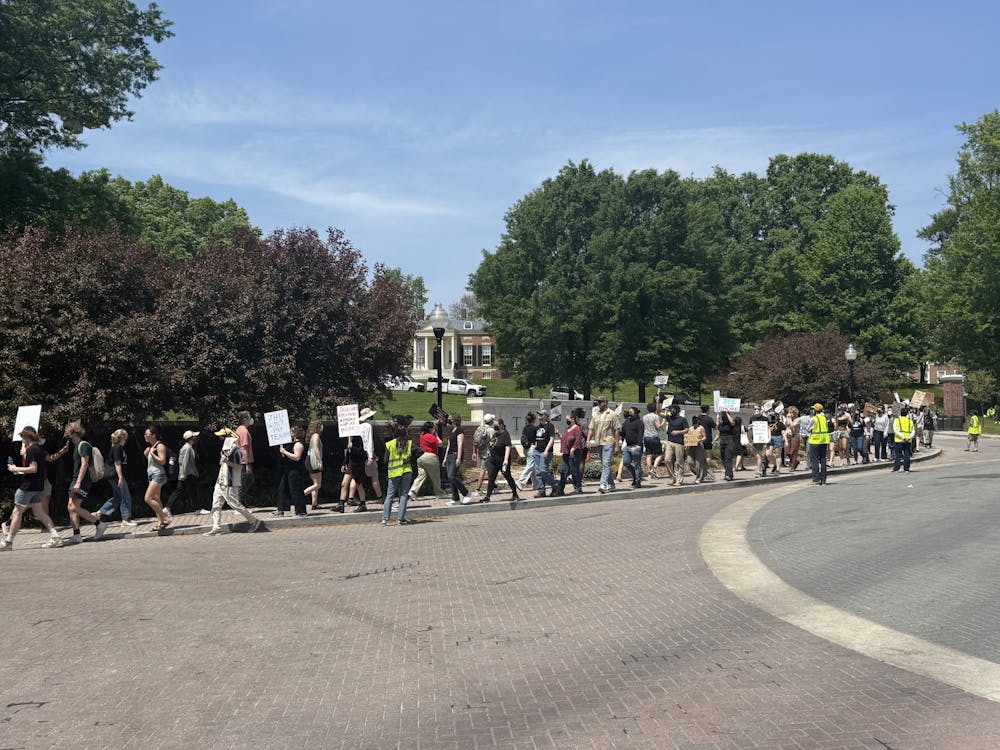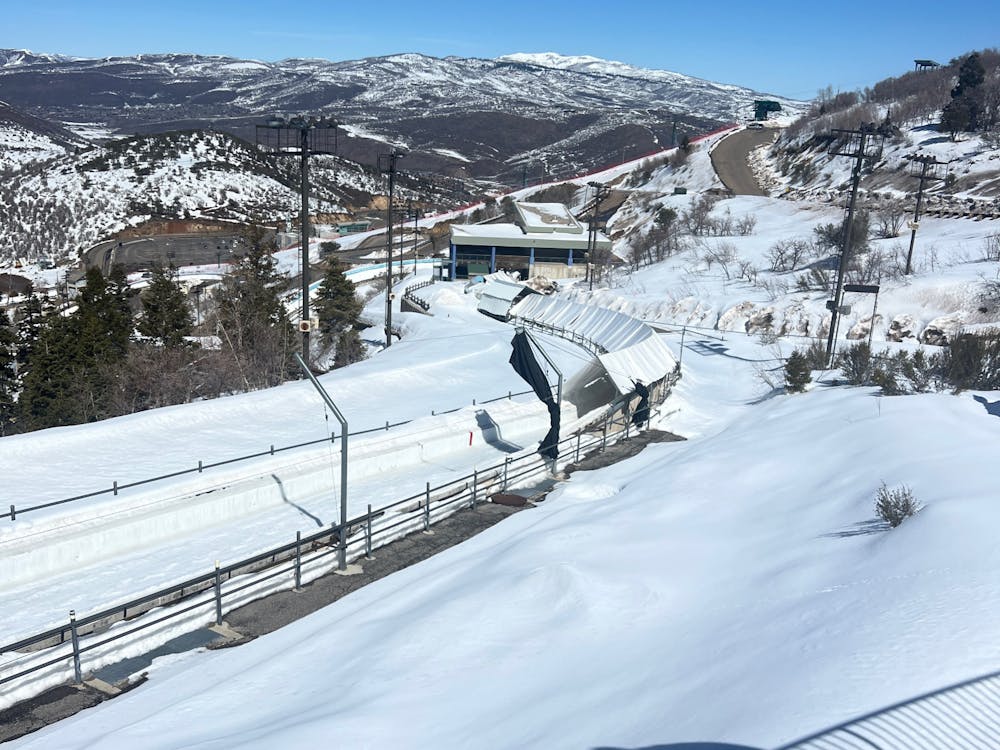On May 1, the Hopkins and Baltimore communities came together for the May Day Picket protest at the Beach, as well as the Dome at the University’s med campus. Organized by Teachers and Researchers United (TRU-UE), the protest demanded that Hopkins declare itself a sanctuary campus, end student surveillance, support the international community, fully fund all ongoing research and commit to academic freedom.
The recent revocation of graduate student visas and increase in Immigration and Customs Enforcement (ICE) detainments served as sources of anxiety for the international community in April, although a majority of the revoked student visas have been reactivated since then. TRU-UE’s protest aimed to ensure that the University is committed to protecting its international community in light of these scares.
Stephen Schmidt, a third-year doctoral worker in Physics and Astronomy and a Media and Communications Committee co-chair for TRU-UE, explained the purpose of the picket in an interview with The News-Letter.
“The overall idea of our picket is that we want Hopkins to be proactive about protecting international workers and our funding,” Schmidt said. “The first of [our] demands is to declare Hopkins [...] a sanctuary campus and to not cooperate with ICE anywhere on campus. There was previously a memo that was sent to faculty and staff, where they said that they shouldn't intervene with anything like that. We want them to intervene. We want them to do whatever they can to prevent ICE from operating on or around campus.”
Janvi Madhani, a fifth-year doctoral student and political action coordinator for TRU-UE, also commented on the University’s refusal to engage with at-risk workers and provide material support to affected students. She highlighted the University’s lack of transparency and emphasized the need for collective action in an interview with The News-Letter.
“It’s been extremely frustrating that the University refuses to engage with the workers who are most at risk and with the union, [not] keeping us abreast of what changes are happening and not providing any material support to the students who have been impacted,” she explained. “They have the resources, both financial and political, to take on a larger fight to address these issues at a systematic level, and what they’re doing is just trying to maintain their image as a positive institution in the media.”
Madhani then elaborated on the need for unified efforts, emphasizing that solidarity among students, researchers and faculty is essential for holding the University accountable. She argued that collective action is the most effective way to compel institutional change, citing last year’s TRU-UE protests which ultimately resulted in a contract with the University that raised stipends for union members.
“We know that the University only moves when we show them that we are united and willing to take collective action to protect each other,” she said. “What we're asking for right now is very basic in terms of both material support for students and commitments to provide funding. We know that they're already making some of these commitments now and we believe that that's because of the pressure we've been applying.”
Madhani then elaborated on the union’s reasons for organizing the May Day picket. Researchers have not been afforded safety from the University, she argued, adding to Schmidt’s description of the importance of the protest.
“[The silence from the University administration] makes us all feel very vulnerable and very much targeted. When we go to work and do our research, we expect to be protected, we expect to be safe at work,“ she said. “We don’t feel that level of safety even to proceed with the basic stuff that is expected of us. Meanwhile, we are still expected to fulfill [our] duties and responsibilities while not being provided any form of dignity or safety.”
As hundreds of TRU-UE members, students, faculty members and campus workers marched at the Homewood and East Baltimore campuses, they emphasized the union’s values of collective action and solidarity. Protesters demanded the University commit to academic freedom by protecting diversity, equity and inclusion (DEI) initiatives.
Sheridon Ward, a graduate worker in the Department of History and a shop steward at TRU-UE, discussed the impact of recent Trump administration decisions — particularly those targeting DEI initiatives — on the history department in an interview with The News-Letter.
“The History Department is one of the best Black history departments in the country, and DEI is under attack by the Trump administration. We don’t necessarily feel that the University is doing all that they can to stand up for us and speak out for our academic freedom,” she explained. “I came out here because I want to see our demands met in a concrete way. [...] Hopkins needs to use this time to come up with a way of protecting international workers and they need to commit to fully funding our research projects that are under attack.”
The National Institutes of Health's funding cuts for scientific research grants served as another source of concern for TRU-UE. On March 14, the University published an article explaining that the termination of more than $800 million in United States Agency for International Development (USAID) grants caused a halt for much of its USAID grant-related activities and resulted in over 2,000 job losses. This led the University to announce investments to support affected researchers, such as the Pivot and Bridge Grant programs, which provide short-term support to faculty members who lost their sponsored funding or experienced significant delays in federal grant awards.
At the protest, TRU-UE also called for the full funding of all ongoing research. While Schmidt expressed his satisfaction with the presence of programs like Bridge Grants, he emphasized the need for the University to provide sufficient information on their accessibility and scope.
“We need them to actually guarantee the funding that people [need] for the research that they're expecting to do,” Schmidt said. “In line with this, Hopkins actually agreed to one of the things that we had suggested that they do before and create a Bridge program for certain people affected. But the issue is that they have not given us sufficient information for us to assess whether or not the amount of funding is adequate for our workers’ needs. We need them to make sure that this funding is accessible to everyone that needs it and that there is enough funding that will cover everyone.”
Schmidt elaborated further on the communication issues TRU-UE experienced with the University and asked the Hopkins administration to be more proactive with alerting the community:
“We have been requesting information from them about the ongoing issues, and they have not adequately responded to our information requests,” Schmidt said. “They're not keeping us totally in the dark, but they are generally not being very prompt and proactive about letting us know when things happen. We need to know what's going on to protect our graduate workers and our members.”





